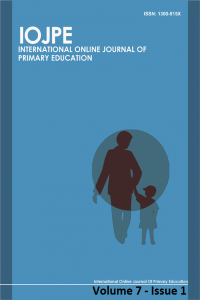Abstract
Educational outcomes are one of the key areas influenced by family incomes which directly effects quality education. Children from low-income families often start school already behind their peers who come from more affluent families, as shown in measures of school readiness. The incidence, depth, duration and timing of poverty all influence a child’s educational attainment, along with community characteristics and social networks. However, it represents that the effects of poverty can be reduced using sustainable interventions to enhance quality education.
Keywords
References
- 1. Pakistan Education-For-All (EFA) National Review Report 2015 Islamabad: Ministry of Education (AEPAM), Government of Pakistan.
- 2. Dakar Framework of Action, Education-For-All (EFA), UNESCO, April 2000.
- 3. Pakistan Education Statistics 2013-2015, National Education Management Information System (NEMIS): Academy of Education Planning and Management (AEPAM), Government of Pakistan.
- 4. Govt. of Pakistan National Plan of Action to Accelerate Education-Related MDGs (2013/14-2015-16) Achieving Universal Quality Primary Education in Pakistan.
- 5. National Annual Status of Education Report ASER-Pakistan 2013-14,Alif-Ailaan and (NEMIS) Academy of Educational Planning and Management Ministry of Federal Education and Professional Training Government of Pakistan.
- 6. Govt. of Pakistan. (1998). National Education Policy 1998-2010. Islamabad: Ministry of Education.
- 7. Govt. of Pakistan. (NCHD) National Commission for Human Development Annual report 2013-14.
- 8. Govt. of Punjab and UNICEF. (2003). Universal Primary Education: Guidelines for District Education Department, Punjab. UNICEF.
- 9. Lockheed, M.E. et al. (1991). Improving Primary Education Developing Countries. Oxford: Oxford University Press.
- 10. Paliakoff, A. and Schwartzbeck, T.D. (Edits). (2001). Eye of the Storm: Promising Practices for Improving Instruction. Washington D.C: CBE.
- 11. Alvi, N. A & Alam, A. (2004). Pakistan Institute of Quality Control. Quality Review, Vol. 1. J Ibrahim Publisher. Lahore.
- 12. Pakistan Education Roadmap for Universal Primary Education and Skills Education, A report of the world economic forum’s Global Agenda Council on Pakistan (2012-2014).
- 13. All EFA Global Monitoring Reports 2012-2015 on Educational Quality, UNESCO.
- 14. The Millennium Development Goals Report 2014 United Nations New York, 2014.
- 15. USAID Study of Education Research and Policy making in Pakistan (June 2013)
- 16. UNESCO. Education for All National EFA 2015 Reviews and Guidelines (2013).
- 17. UNESCO: Dakar Framework for Action – Education for All: Meeting our Collective Commitments.
- 18. Adams, D. (1993). Defining Education Quality. Improving educational Quality Project Publication # 1, Biennial Report Arlington, VA: Institute for International Research.
- 19. Govt. of Pakistan and UNESCO. (2001). Learning Achievement in Primary Schools of Pakistan: A Quest for Quality Education. Islamabad.
- 20. National Education Policy 1998-2010. Islamabad: Ministry of Education.
- 21. UNESCO. (1990). The World Declaration on Education for All.
- 22. UNICEF. (2000). Defining Quality. (A paper presented at the International Working Group on Education Meeting, Italy)
- 23. UNESCO. (2000). World Education Forum: Dakar Framework for Action 2000. Paris: UNESCO.
- 24. Schneider, Karl Heinz and Bergmann Herbert (2002). The Impact of PEP-ILE: Teacher In-service Training and Textbooks on Pupil Achievement and Teacher Behavior. Peshawar: GTZ.
Details
| Primary Language | English |
|---|---|
| Subjects | Other Fields of Education |
| Journal Section | Research Articles |
| Authors | |
| Publication Date | June 30, 2018 |
| Published in Issue | Year 2018 Volume: 7 Issue: 1 |
Creative Commons Licenses

All articles published in International Online Journal of Primary Education's content is licensed under a Creative Commons Attribution 4.0 International License (CC BY 4.0).
(Counter start: February 28, 2021)





